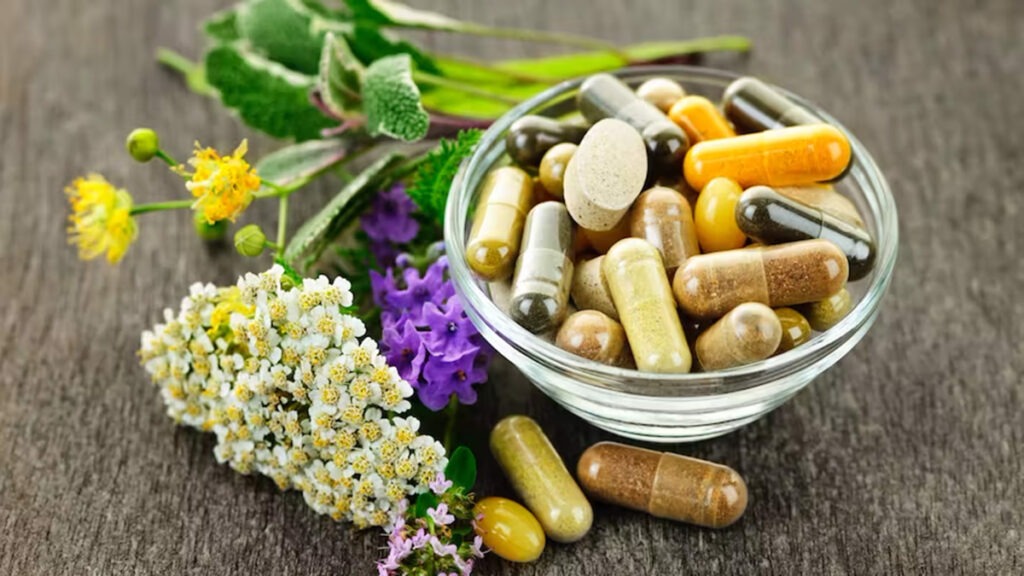Introduction
In recent years, herbal supplements have grown in popularity as a natural method for improving health and well-being. They are used by many people to supplement their diet and treat a variety of conditions. However, many people are unaware that these herbal supplements can interact with prescription medications, which can have serious negative health effects. This article looks at drug interactions with herbal supplements by highlighting risks, precautions, and tips for safe use.
Herbal Supplements: A Growing World
The use of medicinal plants for therapeutic purposes, also known as herbal medicine, dates back thousands of years. Nowadays, it is back in power due to the growing interest in medical alternatives and natural treatments. Herbal supplements are easily available to the general public because they are sold free in many pharmacies and grocery stores. Some use them to treat health conditions such as insomnia, anxiety, joint pain, and many more.
Health-conscious consumers can now get herbal supplements in a variety of forms, from capsules to infusions to powders. People often think that these products are natural and harmless. However, the situation is more complex.
Drug interactions: a potential danger
Potential drug interactions are the main risk associated with the use of herbal supplements. Many plants have active compounds that can interact with chemicals in prescription medications. Interactions can have negative health effects, such as decreased drug effectiveness, serious side effects, or even increased toxicity.
The different risks of drug interactions
Drug interactions with herbal supplements can result in a variety of risks. We find:
- Decreased drug effectiveness: Some herbal supplements may decrease the absorption or effectiveness of medications, compromising their ability to effectively treat a disease.
- Increased side effects: Medications may have more serious side effects due to other interactions, which may make their use unsafe.
- Increased toxicity: Combining drugs with certain herbal supplements may result in increased toxicity that may endanger the patient’s life.
- Allergic reactions: When medications are taken in conjunction with certain herbal supplements, allergic reactions may occur.
- Inefficiency of treatment: Drug interactions can cause treatment to be completely ineffective, which can lead to disease progression.
Precautions to take for safe use
In order to minimize the risks of drug interactions with herbal supplements, it is essential to take precautions.
Here are the precautions to take:
- Consult a health specialist: Consult your doctor or pharmacist before starting any herbal supplement. They can assess your medical condition and recommend the best products.
- Tell your medical team: Make sure your doctor is aware of all herbal supplements and other prescription medications you are taking. This information is crucial to avoid dangerous interactions.
- Do some research: Before starting a new herbal supplement, do thorough research to determine potential interactions between your current medications and the herbal supplements you want to use.
- Watch out for side effects: After starting a new herbal supplement, be aware of any changes in your health condition. If you notice any side effects, tell your doctor.
- Avoid self-medication: Do not use herbal supplements without the advice of a health professional. Self-medication can lead to more serious drug interactions.
- Choose high-quality products: Choose high-quality herbal supplements from well-known suppliers. Beware of unsubstantiated products and claims.
Conclusion
While herbal supplements can improve health, they should not be taken lightly. You can use these supplements as an adjunct to your medical treatment by taking appropriate precautions, consulting your doctor, and staying informed. An informed approach to your well-being is essential to reduce risks and maximize benefits.
